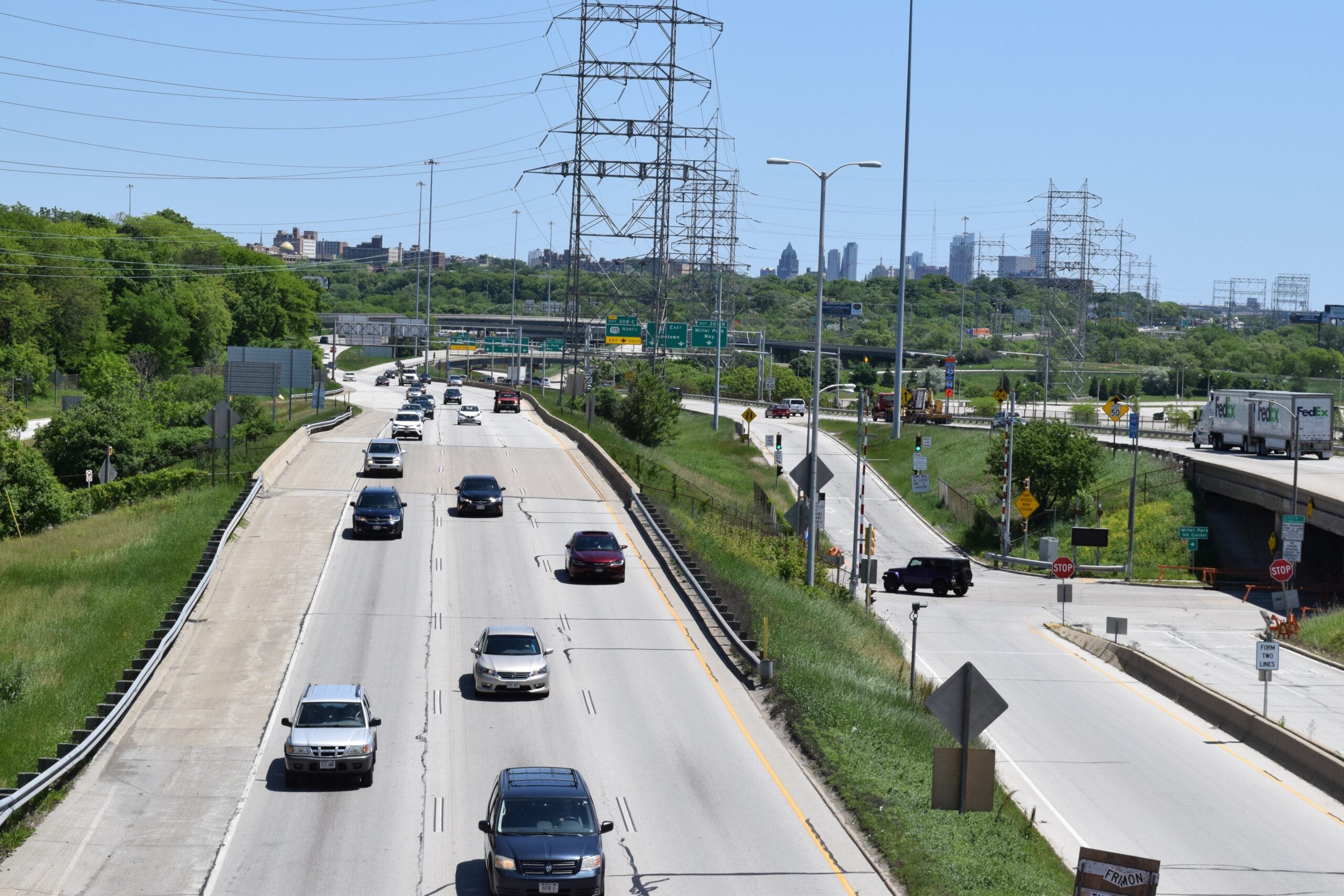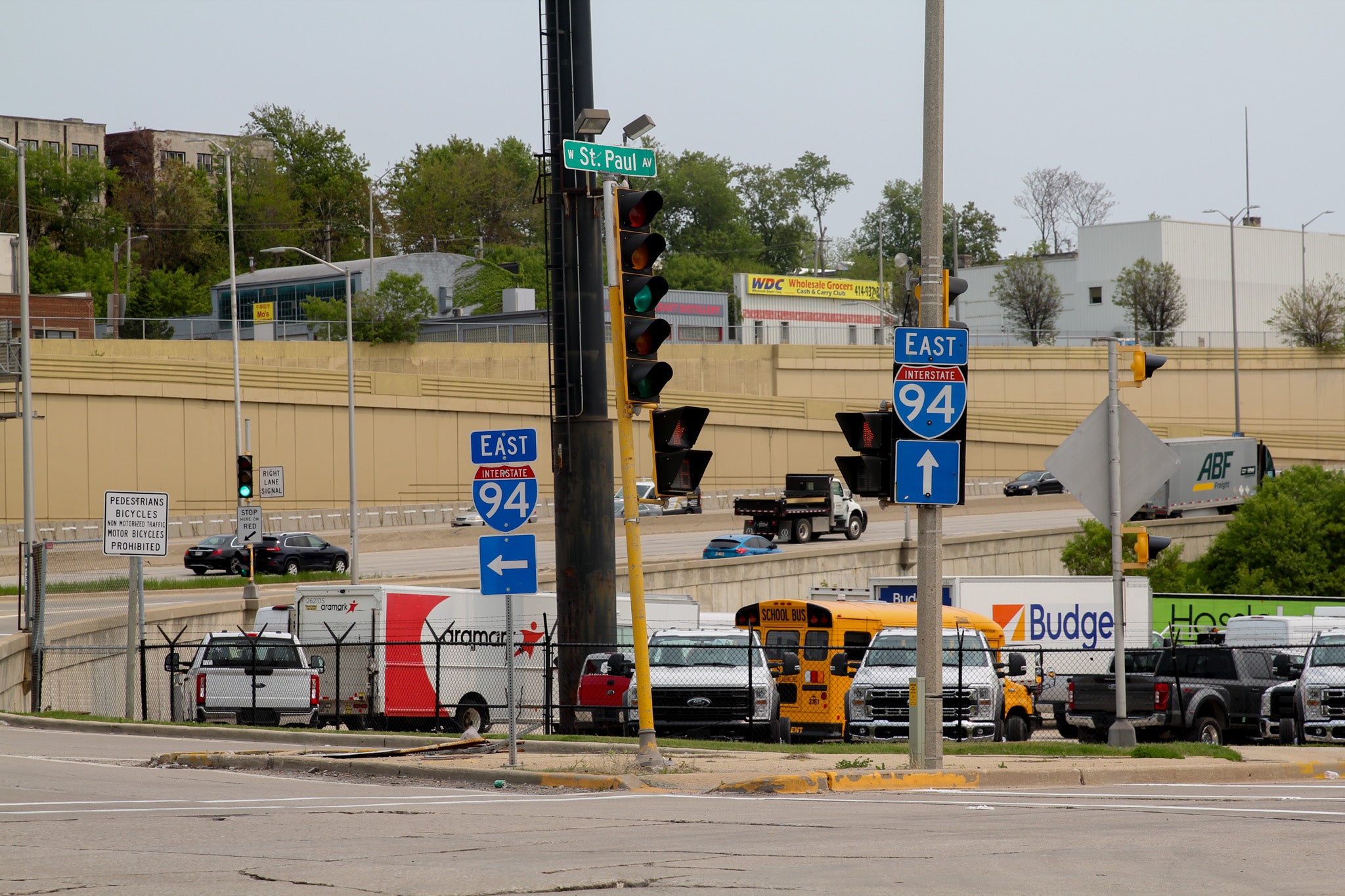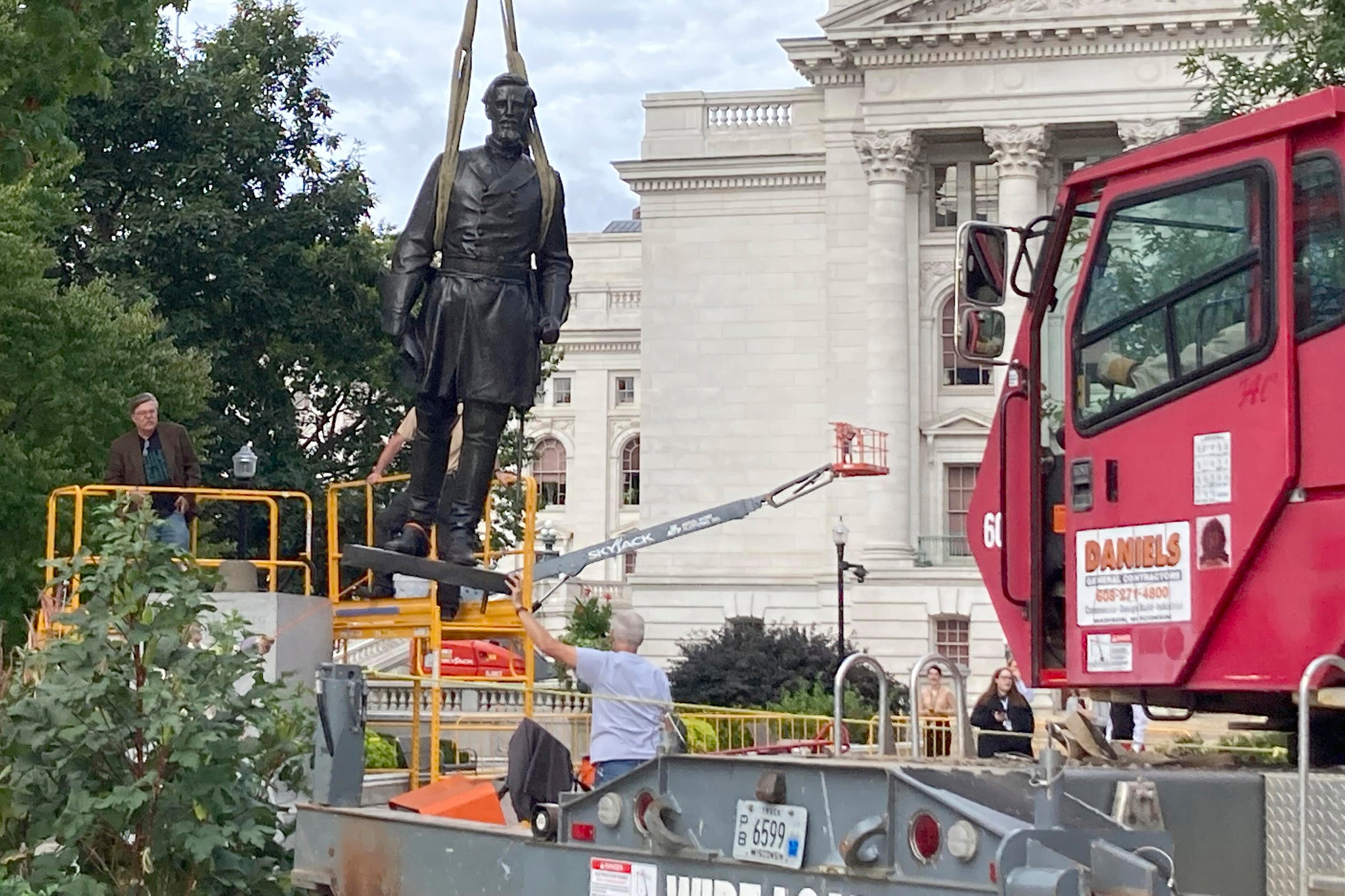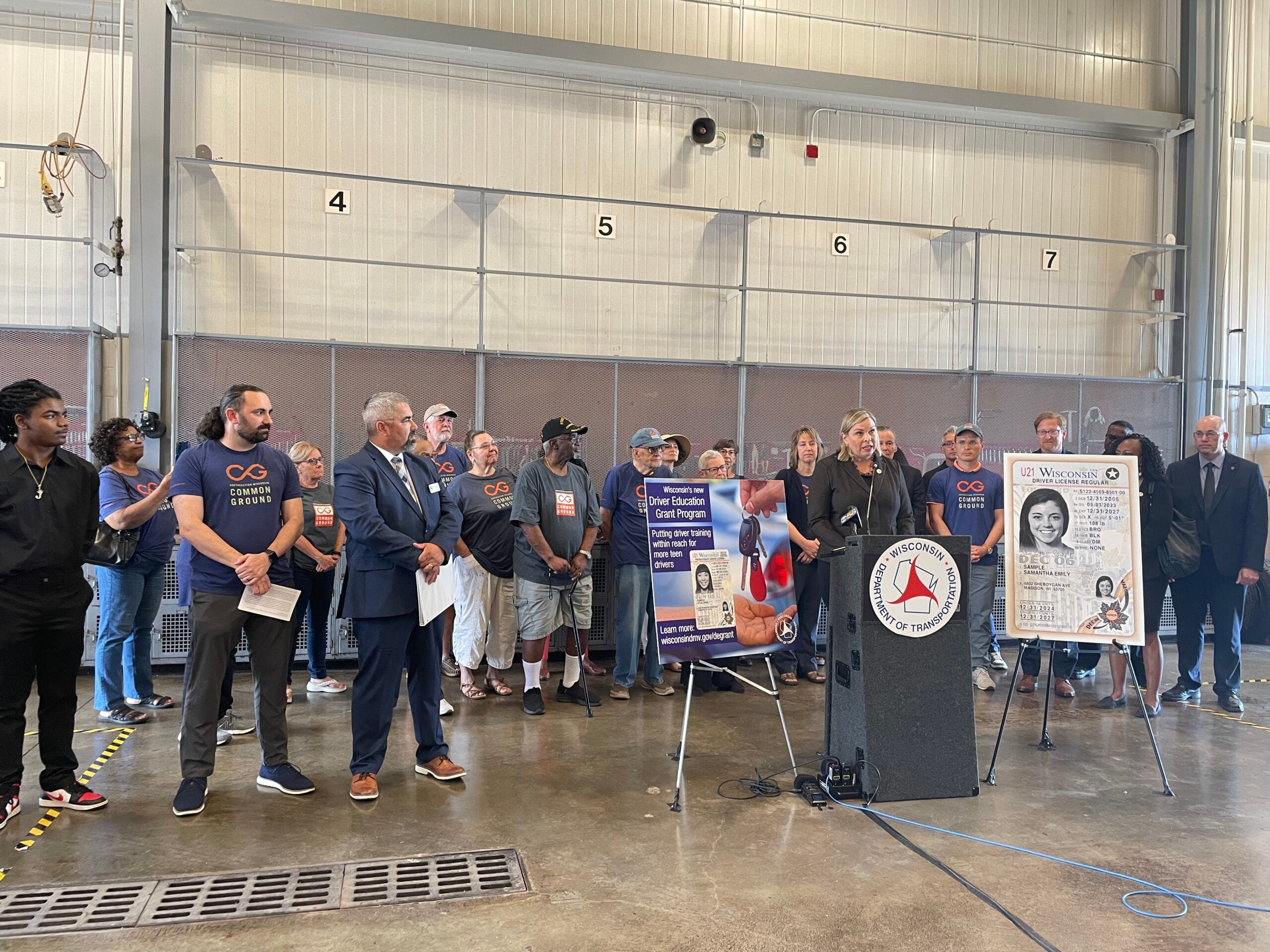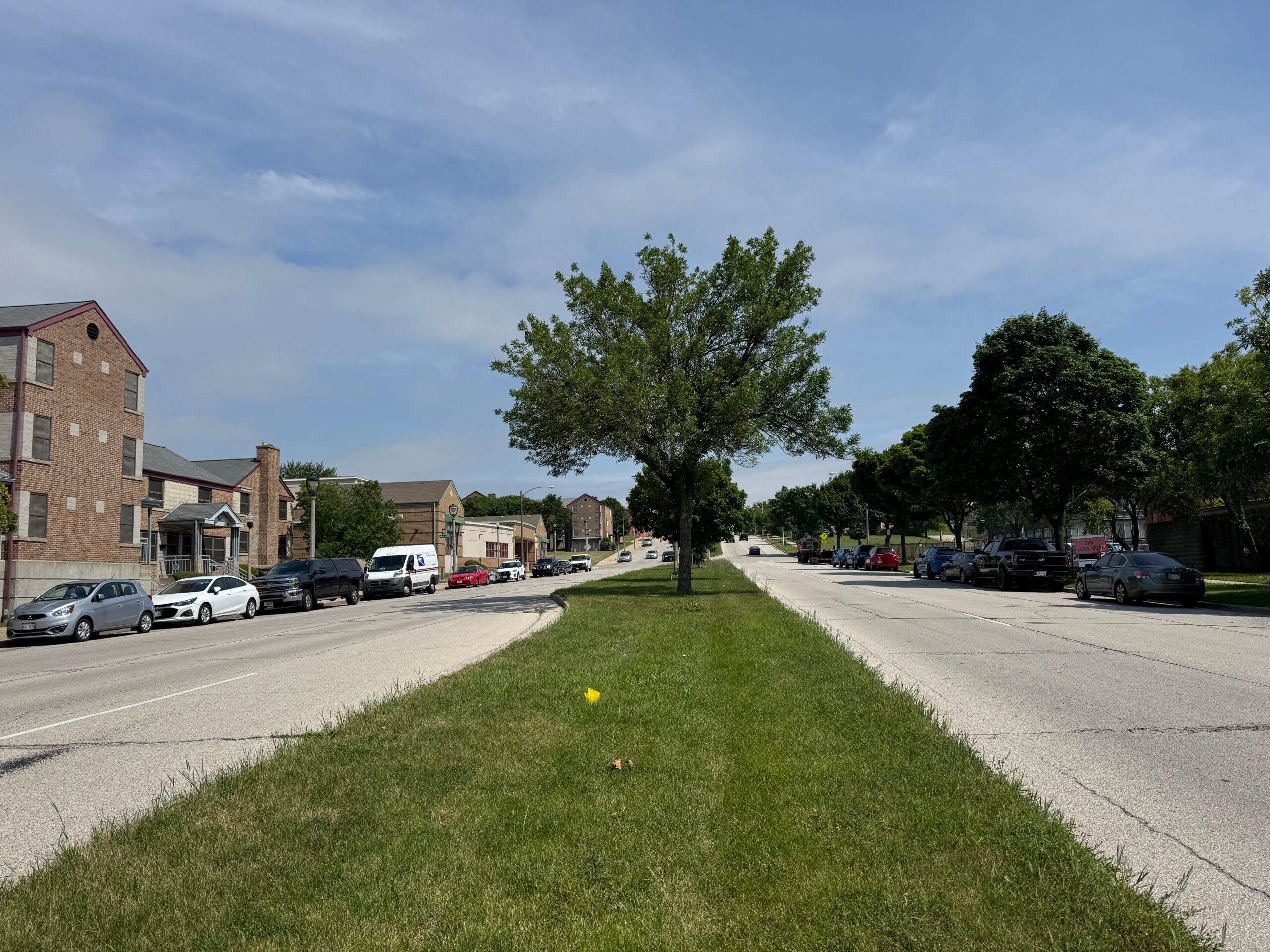Gov. Tony Evers announced Wednesday that his administration will try to revive a $1.1 billion expansion of Interstate 94 west of Milwaukee, a project abandoned years ago by former Gov. Scott Walker amid concerns over its cost.
While the project has long been championed by Milwaukee’s business community as a missing link in southeast Wisconsin’s highway system, it’s been fought by a coalition of groups that represent people of color and environmentalists, some of whom said that they would fight Evers’ plan the way they fought Walker’s.
Evers, who ran for governor in 2018 on a pledge to “fix the damn roads,” announced his plan in a written statement, calling the I-94 east-west highway in Milwaukee County one of the most congested in the state.
News with a little more humanity
WPR’s “Wisconsin Today” newsletter keeps you connected to the state you love without feeling overwhelmed. No paywall. No agenda. No corporate filter.
“Investing in our infrastructure is critically important for our economy,” Evers said. “We know that deferring road maintenance could cost us more down the road and put safety at risk, so getting to work on this project is good common sense.”
While nothing is final, an earlier version of the proposed expansion called for a complete rebuild of roughly three-and-a-half miles of I-94 east-west in Milwaukee County, from 70th Street to 16th Street. That proposal called for adding an additional lane of traffic in each direction, expanding what is currently a six-lane highway to eight lanes.
The state Legislature’s nonpartisan budget office estimated in 2016 that the expansion would cost more than $1.1 billion.
Department of Transportation Secretary Craig Thompson said in a statement that it would cost roughly half that much to rebuild the corridor in its current form, and the end product would be nearly as congested as it is now. He said a rebuilt I-94 east-west corridor would also link Milwaukee’s Marquette and Zoo Interchanges, two massive overpass projects that the state has spent years rebuilding.
“With the Marquette Interchange complete and the Zoo Interchange nearly completed, the East-West corridor would just become a bottleneck between them,” Thompson said. “Maintaining a state of good repair and adequately addressing safety and congestion problems along the corridor is essential, and it will also help the state maximize the return on its investments in other sections of I-94.”
Reaction to the governor’s proposal did not fall along the usual Republican-Democratic fault lines, with some of Evers’ allies attacking the move and some of his staunchest opponents leading the cheers.
Republican state Reps. Joe Sanfelippo of New Berlin and Jessie Rodriguez of Oak Creek both issued statements celebrating Evers’ announcements, as did Waukesha County Executive Paul Farrow, who is among a handful of potential GOP candidates for governor in 2022.
“Investing in this major transportation corridor is an investment in the future of the region,” Farrow said.
But several groups, including the ACLU of Wisconsin, the Sierra Club, WISPIRG, 1000 Friends of Wisconsin and the Milwaukee Innercity Congregations Allied for Hope (MICAH) were sharply critical of the plan in their own statements Wednesday.
“We are going to continue to fight against any decision that ignores the conditions and wellbeing of the people in the city of Milwaukee and surrounding areas,” said Rev. Marilyn Miller, president of MICAH. “We will not stand by and allow the government to continue to roll over us like the cars on these proposed massive freeways.”
“This project has always been a bad idea,” said Elizabeth Ward, chapter director for the statewide branch of the Sierra Club.
“Transportation investments are a matter of environmental justice and equity for communities of color and persons with disabilities,” said Karyn L. Rotker, senior staff attorney at the ACLU of Wisconsin. “WisDOT must include and move forward with an alternative for I-94 East-West that improves transit access that ensures communities of color, persons with disabilities, and other transit-dependent residents receive a fair share of the benefits of the transportation system investment.”
MICAH, the ACLU and the Sierra Club were among the plaintiffs in a 2017 federal lawsuit filed to stop the I-94 east-west expansion from moving forward. The groups dropped their case after the project was not included in Wisconsin’s state budget.
At the time, they argued that the state’s proposal for I-94 failed to incorporate any public transportation element, arguing it would “have the likely effect of exacerbating regional racial segregation.”
Thompson, in an interview with WPR Wednesday afternoon, acknowledged those concerns, but said the Evers administration was willing to address them.
“We’re committed to improving transit access,” Thompson said. “To sitting down and trying to talk through these issues. The improving of this interstate is not the entirety of the answer. We have to look at how it’s affecting everybody and how we can improve mobility for drivers and non-drivers.”
Thompson said an earlier version of the proposed expansion, which called for a double-decker stretch of highway west of Milwaukee, would not be pursued. He said the latest version would also preserve historic grave sites in Milwaukee’s Story Hill neighborhood.
Even if this latest expansion moved forward, it likely won’t happen quickly.
Thompson said the first step would be getting approval from the federal government, renewing environmental and traffic studies as well as cost estimates. He said that process alone would take up to 18 months, meaning it would not be ready to be included in the budget Evers introduces early next year.
Should the federal government sign off, the plan could be included in the 2023 budget proposal, where it would still need the Legislature’s approval. Thompson said that would be around the same time that the state is finishing construction on the Zoo Interchange.
Wisconsin Public Radio, © Copyright 2025, Board of Regents of the University of Wisconsin System and Wisconsin Educational Communications Board.

